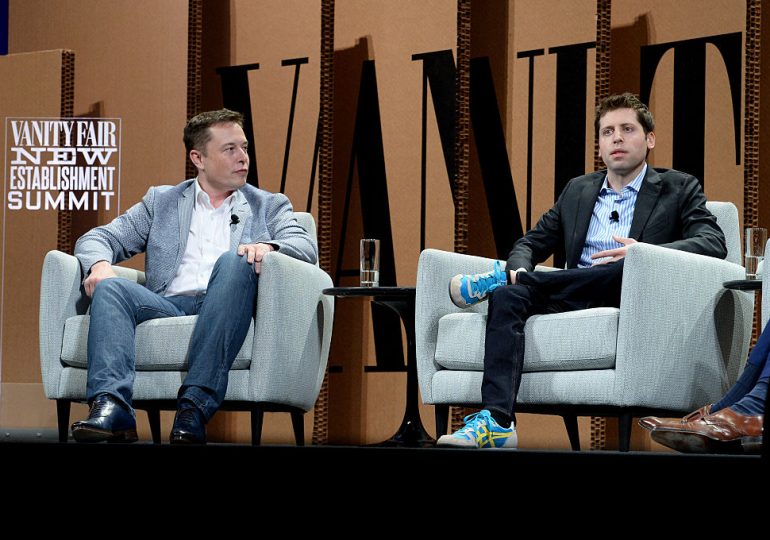Elon Musk sued OpenAI and Chief Executive Officer Sam Altman, alleging they have breached the artificial intelligence startup’s founding agreement by putting profit ahead of benefiting humanity.
The 52-year-old billionaire, who was a co-founder of OpenAI but no longer owns a stake, said in a suit filed late Thursday in San Francisco that the company’s close relationship with Microsoft Corp. has undermined its original mission of creating open-source technology that wouldn’t be subject to corporate priorities.
[time-brightcove not-tgx=”true”]
Musk, who is also CEO of Tesla Inc., has been among the most outspoken about the dangers of AI and artificial general intelligence. The release of OpenAI’s ChatGPT more than a year ago popularized advances in AI technology and raised concerns about the risks surrounding the race to develop AGI, where computers are as smart as an average human.
Read More: Inside Elon Musk’s Struggle for the Future of AI
“To this day, OpenAI Inc.’s website continues to profess that its charter is to ensure that AGI ‘benefits all of humanity,’” the lawsuit said. “In reality, however, OpenAI Inc. has been transformed into a closed-source de facto subsidiary of the largest technology company in the world: Microsoft.”
Spokespeople for OpenAI and Musk did not immediately respond to requests for comment.
Musk, the world’s richest person, helped establish OpenAI in 2015 but stepped away from the company some two years later over philosophical differences about how to profit from the technology. In addition to leading Tesla, he owns the social network X and is raising money for an AI venture he founded called xAI that features its own ChatGPT-type chatbot, Grok.
In the filing, Musk took aim at the restructuring of OpenAI’s leadership last year, a tumultuous period during which Altman was ousted as CEO and then quickly reinstated with support from Microsoft. Musk argued in the suit that Altman, OpenAI President Greg Brockman and Microsoft worked together to oust the majority of the startup’s board, who had been responsible for enforcing its original mission of developing technology for the benefit of humanity.
Since introducing ChatGPT and GPT-4, the large language model that powers the chatbot, OpenAI has set off a wave of AI adoption in enterprises around the world. Microsoft has been one of the most aggressive in incorporating the technology into its wide array of cloud and enterprise services.
“Altman hand-picked a new board that lacks similar technical expertise or any substantial background in AI governance, which the previous board had by design,” the lawsuit said. “The new Board consisted of members with more experience in profit-centric enterprises or politics than in AI ethics and governance. They were also reportedly ‘big fans of Altman.’”
The case marks an escalation in the one of the highest-profile clashes in the emerging field of AI, pitting two of its most prominent players against each other. The lawsuit will have implications not just for OpenAI, which is seeking to raise funds at a valuation of $100 billion or more, but also for Microsoft. The Seattle-based firm’s shares have soared 68% in the last year, making it the most valuable company in the world, as it seeks to become a leader in AI adoption.
“With this restructuring, OpenAI Inc. abandoned its non-profit mission of developing AGI for the benefit of humanity broadly, thereby keeping it out of the hands of a large for-profit corporation in which vast power would be unduly concentrated,” the lawsuit said.
Leave a comment








